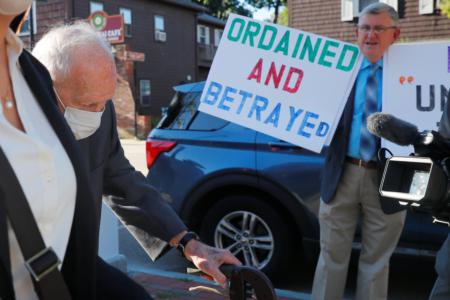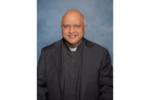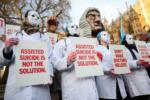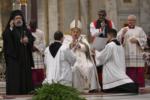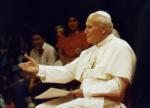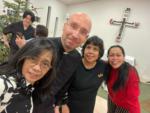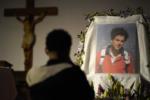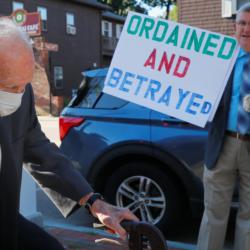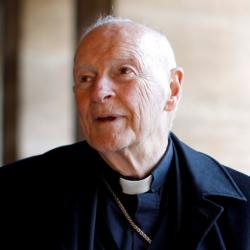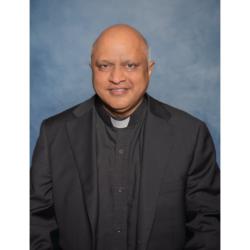Parishes encouraged to observe Child Abuse Prevention Month
BRAINTREE -- The archdiocese is asking parishes to observe the month of April, which is National Child Abuse Prevention Month, by acknowledging survivors of abuse in the Church, emphasizing the need for prevention work, and raising awareness of available resources.
This month is particularly significant to the archdiocese this year, as 2022 is the 20th anniversary of two events that changed the way the Church, and society at large, regards child abuse: the Boston Globe's revelation of the scope of clergy sexual abuse in Boston in January 2002; and the USCCB's passage of the Charter for the Protection of Children and Young People in June 2002.
To mark the start of the special month, Cardinal Seán P. O'Malley is scheduled to celebrate a special Mass highlighting abuse awareness at St. Mary Church in Hull at 10 a.m. on April 3.
During that weekend, parishes are also being asked to recognize and pray for survivors of abuse and acknowledge the need and availability of ongoing prevention services. Parishes may do this by addressing these topics in homilies, prayers of the faithful, or bulletin inserts.
The archdiocese's Office of Pastoral Support and Child Protection is also planning to intensify its work during this month, though its services to parishes and individuals are available year-round.
Vivian Soper directs the office, which was formed in 2002 to respond to the revelation of the full scope of the crisis of sexual abuse committed by clergy. Soper has worked with victims of abuse for most of her career as a social worker.
While acknowledging that this year is a notable anniversary of the clergy abuse crisis, she maintains that the issue they address is actually much older.
"The reality is that the crisis is not 20 years old. The crisis existed for decades before 2002," Soper said.
She said she refers to it as "the crisis" rather than "the scandal," because "thinking of it in terms of a scandal is a piece of what got the Church in a jam in the first place, because the Church was very invested in avoiding scandal and therefore ignoring the crisis."
"What matters isn't 20 years of scandal. What matters is decades of the crisis of clergy abuse," she said in a March 21 interview.
The office has two components: the Office of Child Advocacy, which focuses on prevention; and the Office of Pastoral Support and Outreach, which helps survivors in their journey of healing.
The prevention side of the office's work involves training employees and volunteers in parishes and schools. Any adult who may come into contact with children is required to participate in Protecting God's Children, a program that teaches them how to create safe environments and identify signs of abuse.
"We teach them what kinds of things should set off alarms that something is wrong, and what to do if they have any worries," Soper said.
The office also provides curricula to teach children in Catholic schools and religious education programs to keep themselves safe -- although, Soper emphasized, that responsibility can never be put entirely on a child. In an age-appropriate way, they teach children about what to do if an adult makes them feel uncomfortable, and help children identify adults they can talk to in such situations.
"It's important that we do the education with kids so that they know what to do," Soper said.
The office can take initial reports of abuse committed by clergy or other Church leaders. Today, Soper said, the vast majority of reports they receive are about abuse committed years ago by known perpetrators. They also file reports of suspected abuse outside of schools and parishes, when adults in the Church recognize possible signs of abuse.
The office will assist anyone who has been abused by a priest, regardless of how long ago it happened. If the abuse took place outside the Archdiocese of Boston, the office will help the victim report it to the appropriate places. They can also connect survivors with therapy, and even help pay for it if the perpetrator was from the archdiocese.
"The journey for the people who were abused and for their families doesn't necessarily stop. And everyone's journey is different," Soper said.
Adult survivors of clergy sexual abuse also play a role in awareness and prevention efforts. Those who are in a place in their healing where they feel comfortable sharing their story give talks to parishes, seminarians, and deacons in formation. By the time they are ordained, even the youngest seminarians, who may have been children themselves in 2002, are made aware of this problem and the impact it has had.
One way that the office makes its work known is through posters that hang in church vestibules, providing information about who to contact if someone suspects that a child is being abused, or if they themselves have been abused.
Soper acknowledged that some people question the placement of these posters, as they remind people of the crisis as soon as they step inside a church. Her response, she said, is that they want people to see that the church protects children and pays attention to people who have been hurt.
"We need to remind people who are walking in that if they have worries about a kid, there's something they can do about it," Soper said.
Information about the Office of Child Advocacy is available at bostoncatholic.org/child-advocacy, and information about the Office of Pastoral Support and Outreach is available at bostoncatholic.org/pastoral-support-and-outreach.
